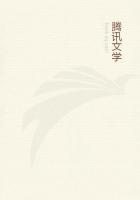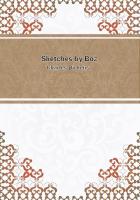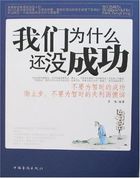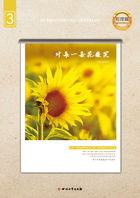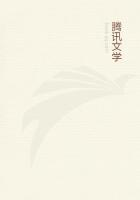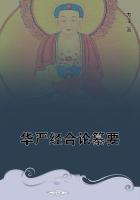14. The bare testimony of divine revelation is the highest certainty. Besides those we have hitherto mentioned, there is one sort of propositions that challenge the highest degree of our assent, upon bare testimony, whether the thing proposed agree or disagree with common experience, and the ordinary course of things, or no. The reason whereof is, because the testimony is of such an one as cannot deceive nor be deceived: and that is of God himself. This carries with it an assurance beyond doubt, evidence beyond exception. This is called by a peculiar name, revelation, and our assent to it, faith, which as absolutely determines our minds, and as perfectly excludes all wavering, as our knowledge itself; and we may as well doubt of our own being, as we can whether any revelation from God be true. So that faith is a settled and sure principle of assent and assurance, and leaves no manner of room for doubt or hesitation. Only we must be sure that it be a divine revelation, and that we understand it right: else we shall expose ourselves to all the extravagancy of enthusiasm, and all the error of wrong principles, if we have faith and assurance in what is not divine revelation. And therefore, in those cases, our assent can be rationally no higher than the evidence of its being a revelation, and that this is the meaning of the expressions it is delivered in. If the evidence of its being a revelation, or that this is its true sense, be only on probable proofs, our assent can reach no higher than an assurance or diffidence, arising from the more or less apparent probability of the proofs. But of faith, and the precedency it ought to have before other arguments of persuasion, I shall speak more hereafter; where Itreat of it as it is ordinarily placed, in contradistinction to reason; though in truth it be nothing else but an assent founded on the highest reason.
Chapter XVII
Of Reason 1. Various significations of the word "reason". The word reason in the English language has different significations: sometimes it is taken for true and clear principles: sometimes for clear and fair deductions from those principles: and sometimes for the cause, and particularly the final cause. But the consideration I shall have of it here is in a signification different from all these; and that is, as it stands for a faculty in man, that faculty whereby man is supposed to be distinguished from beasts, and wherein it is evident he much surpasses them.
2. Wherein reasoning consists. If general knowledge, as has been shown, consists in a perception of the agreement or disagreement of our own ideas, and the knowledge of the existence of all things without us (except only of a God, whose existence every man may certainly know and demonstrate to himself from his own existence), be had only by our senses, what room is there for the exercise of any other faculty, but outward sense and inward perception? What need it there of reason? Very much: both for the enlargement of our knowledge, and regulating our assent. For it hath to do both in knowledge and opinion, and is necessary and assisting to all our other intellectual faculties, and indeed contains two of them, viz. sagacity and illation. By the one, it finds out; and by the other, it so orders the intermediate ideas as to discover what connexion there is in each link of the chain, whereby the extremes are held together; and thereby, as it were, to draw into view the truth sought for, which is that which we call illation or inference, and consists in nothing but the perception of the connexion there is between the ideas, in each step of the deduction; whereby the mind comes to see, either the certain agreement or disagreement of any two ideas, as in demonstration, in which it arrives at knowledge; or their probable connexion, on which it gives or withholds its assent, as in opinion.
Sense and intuition reach but a very little way. The greatest part of our knowledge depends upon deductions and intermediate ideas: and in those cases where we are fain to substitute assent instead of knowledge, and take propositions for true, without being certain they are so, we have need to find out, examine, and compare the grounds of their probability. In both these cases, the faculty which finds out the means, and rightly applies them, to discover certainty in the one, and probability in the other, is that which we call reason. For, as reason perceives the necessary and indubitable connexion of all the ideas or proofs one to another, in each step of any demonstration that produces knowledge; so it likewise perceives the probable connexion of all the ideas or proofs one to another, in every step of a discourse, to which it will think assent due. This is the lowest degree of that which can be truly called reason. For where the mind does not perceive this probable connexion, where it does not discern whether there be any such connexion or no; there men's opinions are not the product of judgment, or the consequence of reason, but the effects of chance and hazard, of a mind floating at all adventures, without choice and without direction.
3. Reason in its four degrees. So that we may in reason consider these degrees: four the first and highest is the discovering and finding out of truths; the second, the regular and methodical disposition of them, and laying them in a clear and fit order, to make their connexion and force be plainly and easily perceived; the third is the perceiving their connexion; and the fourth, a making a right conclusion. These several degrees may be observed in any mathematical demonstration; it being one thing to perceive the connexion of each part, as the demonstration is made by another;another to perceive the dependence of the conclusion on all the parts;a third, to make out a demonstration clearly and neatly one's self;and something different from all these, to have first found out these intermediate ideas or proofs by which it is made.

